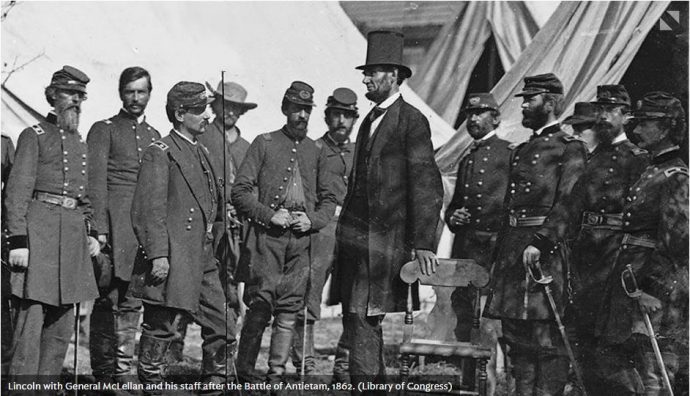From Lewis E. Lehrman:
In his July 4 message to Congress in 1861, President Lincoln wrote that the secession crisis “forces us to ask: ‘Is there, in all republics, this inherent and fatal weakness?’ Must a government, of necessity, be too strong for the liberties of its own people, or too weak to maintain its own existence?”
Staying focused on the great questions of American politics and political philosophy, Lincoln continued:
Our popular government has often been called an experiment. Two points in it our people have already settled: the successful establishing and the successful administering of it. One still remains: its successful maintenance against a formidable internal attempt to overthrow it. . . . Such will be a great lesson of peace; teaching men that what they cannot take by an election, neither can they take by a war, teaching all the folly of being the beginners of a war.
Handling secession at the outset of a new administration was mind-bending for a president inexperienced in executive leadership. “Our poor President is having a hard time of it,” observed a Republican senator. “He came here tall, strong and vigorous, but has worked himself almost to death.”
Lincoln would not be diverted from his war strategy by the chatter of debate over slavery. His final war aims were unconditional: reunion and emancipation. His Cooper Union speech of February 1860 had set the tone of the president’s wartime strategy:
Let us be diverted by none of those sophistical contrivances wherewith we are so industriously plied and belabored — contrivances such as groping for some middle ground between the right and the wrong as the search of a man who should be neither a living man nor a dead man — such as a policy of “don’t care” on a question about which all true men do care — such as Union appeals beseeching true Union men to yield to Disunionists reversing the divine rule, and calling, not the sinners, but the righteous to repentance. . . . Let us have faith that right makes might, and in that faith, let us, to the end, dare to do our duty as we understand it.
Lincoln’s friend Leonard Swett recalled that Lincoln “employed tactics wholly different from any other politician we ever had. He believed in the results to which certain great causes tended, and he did not believe those results could be hastened, changed, or impeded by personal interference. Hence he was no political manipulator. He believed from the first the agitation of slavery would produce its overthrow, and his personal tactics consisted simply in getting himself in the right place, and staying until events found him there.
Read more: National Review

